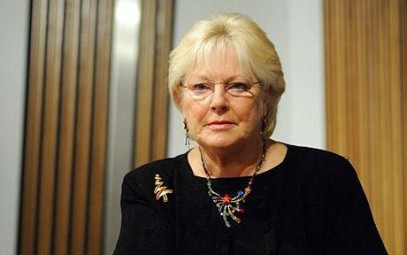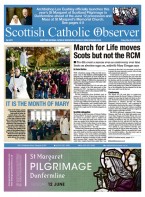BY Dan McGinty | October 21 | ![]() 1 COMMENT
1 COMMENT ![]() print
print

Weakest at serious risk from assisted suicide
A new report for the Centre for Policy Studies has found that a change in the law on assisted suicide would place the weakest and most vulnerable members of society at serious risk.
Assisted Suicide—How the Chattering Classes Have Got it Wrong, by Cristina Odone, warns that the legalisation of such a process, as is being proposed in Scotland through Margo MacDonald’s End of Life Assistance (Scotland) Bill, would place an obligation on the dying, ill and disabled to end their lives.
Ms Odone’s report launched a scathing attack on the current proposals, which have reached the status of a bill in the Scottish Parliament, at the behest of Ms MacDonald (above), but nowhere else in the UK.
“As assisted suicide becomes embedded in our culture, investing resources in caring for these vulnerable groups will be seen as a waste: they’ll be gone,” according to the report. “Britain will be a collection of individualists in the prime of life and good health. Anyone else will have felt compelled to end their miserable existence.”
The End of Life Assistance Bill, which proposes to allow those suffering from a progressive degenerative condition, trauma or terminal illness to seek the assistance of a doctor in ending their life, is currently being debated in Scotland at committee level, with the first Parliamentary vote on the bill expected to take place next month.
Despite the claims that checks and balances inherent in the Scottish legislation will prevent abuses, Cristina Odone’s report highlighted specifically that issue.
“The elderly, people with severe disabilities, the mentally unstable, and those with terminal illnesses will be presented with self-inflicted death as a natural, normal and expected final solution,” it said. “They may feel that, once over a certain age, or grown too dependent on others, or too fed up with life, or too ill, they should opt for death rather than life.”
“Worse, many may be coerced, actively or subtly, by cost-conscious hospitals, or by intended heirs with an eye to a legacy, or by exhausted carers.”
The Catholic Church in Scotland has long stated its objection to Margo MacDonald’s bill, and lent support to an alternative that will focuses on the improvement and refinement of palliative care through the NHS.
This move has found support from the British Medical Association in Scotland, which recently welcomed the Palliative Care (Scotland) Bill, which aims to ensure palliative is provided in a more comprehensive fashion to all those suffering from progressive and terminal conditions.
In its response to the palliative care bill, the British Medical Association Scotland said: “In the BMA’s view, it is vitally important that terminally ill people should have a choice about how and where they are cared for and die. To achieve this, high quality end of life services must be spread equitably and emphasis placed on timely, personalised and dignified care.
“Among the strategies which have already emerged is the early identification of patients who are approaching the end of life so that a detailed assessment of their needs can take place and a care plan developed with them but this also requires that the right care be available.
The response continued: “The Palliative Care (Scotland) Bill echoes aims which the BMA has long supported. We note that its stated objective is to ensure ’access to palliative care for everyone in Scotland with a progressive life-limiting condition and their family members’.












Very obiously, we did not bring ourselves into existence. Our parents did not create us; they merely chose the time and the place of our beginning. This means that we belong to out creator in an absolute sense.
It is therefore abundantly clear that we have no authority to terminate our earthly existence, because all such authority would have to come from Him.
It is easy enough to fool oneself and ignore this logic, which is inscribed in everyman’s conscience, when it does not suit one’s wishes. If one does not have the courage to face a painful and protracted death, how can one be courageous enough to face eternity, even if one were to regard eternity as a remote possibility.